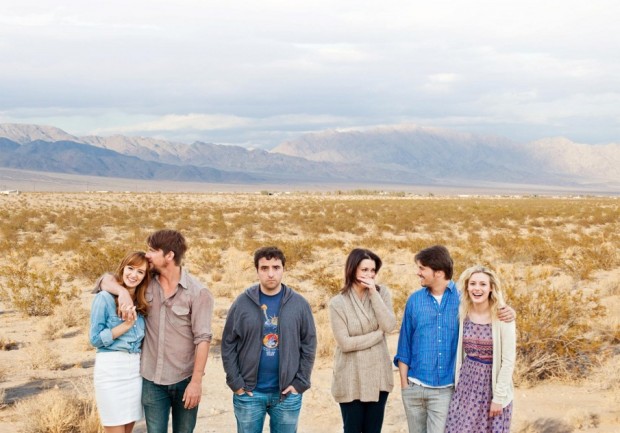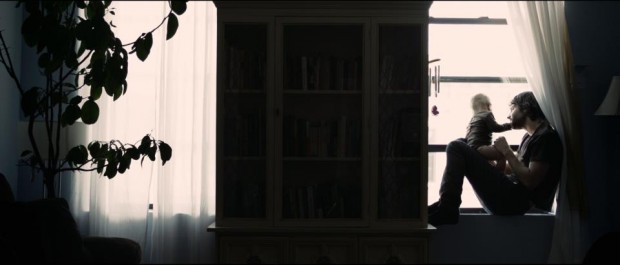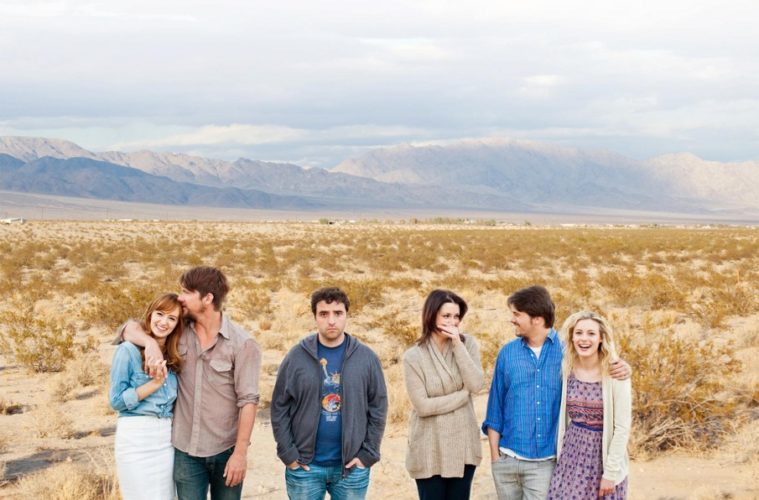
The Seattle International Film Festival (SIFF) has a reputation of being more of an “audience festival” than an “industry festival,” and certainly not without reason. It’s the longest and largest film festival in the United States—this year running from May 16 to June 9—but it is low on premieres, particularly of big name films. This year features Sofia Coppola’s The Bling Ring in its United States premiere, but only five days before the film’s theatrical release. Other highlights, from Joss Whedon’s Much Ado About Nothing to David Lowery’s Ain’t Them Bodies Saints, have already played other major festivals.
Still, for locals or for those who do make the trip, there are plenty of great films to choose from. In addition to the above films, Tribeca winner The Rocket, Venice winner Pieta, recent Cannes premiere Laurence Anyways and other festival favorites like Short Term 12, Pit Stop, Inequality For All, and The East. A lack of big name premieres is made up for with a wide range of acclaimed films, and there are hundreds of smaller independent films to pick from, too. While the lack of major, long-lead premieres may keep away big, national press, SIFF is a great place to catch up on the festival-circuit while still staying noticeably ahead of the theatrical release days, and it’s a chance for locals to catch smaller films whose distribution deals may not get it there otherwise.
For the second year now, six of the best independents at the festival have been sectioned off as “Catalyst” films, films that “capture the spirit of independent film being made today.” Last year included the recently-released and critically acclaimed Welcome to Pine Hill, and the six this year—four of which are world premieres—range from single-shot neo-noirs to somewhat raunchy comedies and unique coming-of-age stories. Of the four I saw (regrettably, the single-shot Worm was not one of them), it looks like Catalyst is delivering on its promise.
There is one film from the series, The Little Tin Man, which did not work. The film tells the story of a dwarf named Herman (Aaron Beelner) who aspires to be an actor but is constantly typecast in his profession and constantly discriminated against in the rest of his life. The film provides its share of laughs, but the excessive stereotypes that all the characters conform to and its attention to the protagonist’s dwarfism undermine its very purpose. For a film that spends much of its time saying that Herman can be a leading man without regards to its height, it nonetheless turns the role into one that over-emphasizes his height.

Even The Little Tin Man does not rely on clichés, however, and the Catalyst films can all take pride in their originality. A Song Still Inside is a timely look at parenting that reverses gender roles without creating its own stereotypes. Michael (Rodrigo Lopresti) is an aspiring actor who mostly stays at home to take care of his son while his wife, Maggie (Susan Highsmith), is a more successful actor and the primary breadwinner. It could easily devolve into a preachy display of oversimplified gender equality, but Gregory Collins, who wrote and directed, confronts problems of the male-ego and makes Maggie likable and well-intentioned but obliviously insensitive. What arises, then, is a look at very specific problems not just of a newer, modern family, but of competing parents and the pull forced by gendered aspects of parenthood (such as breastfeeding). The ending is perhaps too reactionary, but it’s a well-paced film that takes on timely issues with a level of complexity and truthfulness that is hard to find.
A Song Still Inside is also the increasingly rare breed of New York City-set films that doesn’t put an exclamation point on its setting. There is one shot in the subway, but still, despite the professions of the protagonists, this is a film that could—and indeed, does—take place anywhere, not just New York.
On the other end of the spectrum is The Forgotten Kingdom, the debut feature by Andrew Mudge, very specifically set in Johannesburg and Lesotho. Mudge spent a year living in Lesotho prior to making the movie collecting stories and implementing feedback to make a story true to the culture, in which Atang (Zenzo Ngqobe) is brought back to Lesotho due to his father’s death. The hustle and bustle of Johannesburg street-life is displayed in short, mobile takes, but the film quickly moves to Lesotho and takes on a more meditative pace, shown in static, longer takes, showing off a gorgeous country that isn’t appreciated for its natural beauty.
The Forgotten Kingdom becomes a coming-of-age story about rekindled love and family, but more than that, it’s an examination of cultural tradition and an unveiling of oft-ignored problems from superstition and sorcery to the AIDS epidemic, often times contrasting the beliefs and patterns of the Basotho people and South African people. There are pacing problems, and a couple plot events are dropped too suddenly, but the overlying relevance both to the film’s themes and of the real-life cultures it depicts even things out. When Atang meets a younger boy, also parentless, the film drifts toward magical realism and takes on an impressive cinematic quality, a mystical coming-of-age story colored by cultural collisions and haunted by the past.

Teddy Bears is an altogether different movie, an outrageous premise that, when at its best, is played with deadpan seriousness. Andrew (David Krumholtz) recently lost his mother to cancer, and hints at his own mental problems run throughout the film, but we don’t know these things when he first invites his group of friends, two couples, to vacation with him and his wife at a rented house in the desert and then asks them all to have sex with him. Or, not all of them. He awkwardly admits he only wants the women.
The concept is absurd. Wisely, director Rebecca Fishman and writer-director Thomas Beatty don’t psychologize Andrew and instead play confrontations for laughs and hold-off on exposition altogether. We don’t know what brought these people to the desert, what they do, and we barely know the relationship or background between any two of them—at least at first. What really elevates Teddy Bears is its lack of exposition. Information begins to come out naturally as the movie goes on, and by that point, a tone has been set, and the film can get away with jokes and events that would not work if the premise was not originally introduced in such an over-the-top way. But what emerges is a surprisingly honest look at relationships both stale and comfortable, all in an entirely refreshing package that finds weight in absurdity and humor in darkness.
Altogether, this year’s Catalyst section is a diverse package, and The Forgotten Kingdom in particular could follow in the footsteps of Welcome To Pine Hill. Tellingly, my experience with the first four has made me eager to seek out the last two, the aforementioned Worm and another comedy called Mutual Friends (dir. Matthew Watts). They may not be the festival’s best films, but each film offered something I had not seen before, and the state of cinema is never so crowded that it can’t make space for something new.
Which of the Catalyst films are you most eager to see?

